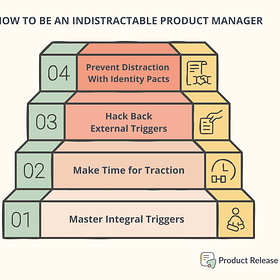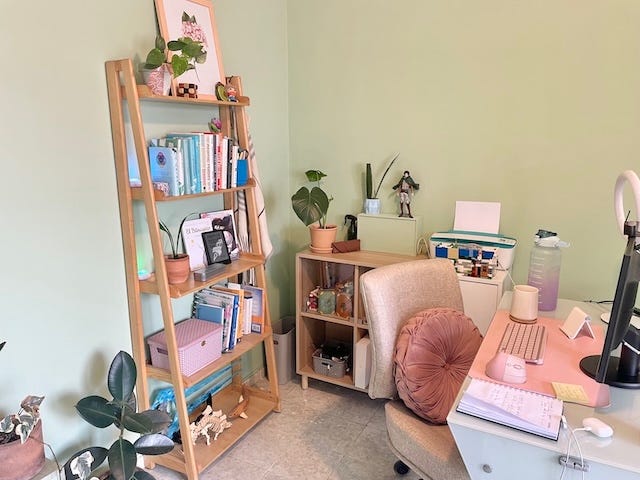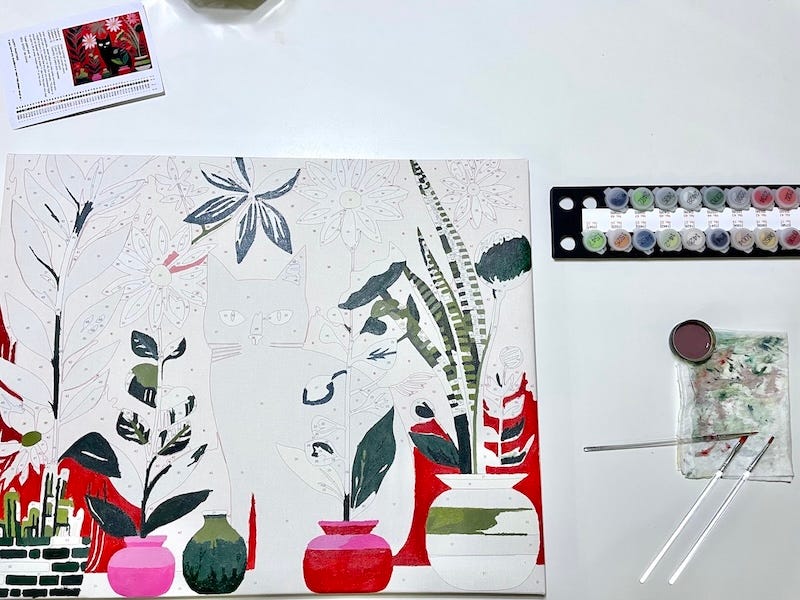How To Rest And Recharge In The Tech Industry
Discover activities that truly help tech professionals unplug, restore mental clarity, and return to work energized. These research-backed options might surprise you.
Years ago during the summer, the head of marketing was anxiously preparing to go on vacation and bond with his daughters, while I, intent on proving my dedication, insisted on working instead of taking my paid time off. “I have tons of work to do, I don't think I can take PTO now.” I told my manager during our 1:1 meeting before he left.
Only to discover months later that my refusal to take a break led to terrible stress and burnout that forced me to quit my job: a hard lesson that ignoring rest undermines resilience, no matter how “committed” you may seem.
What I didn't realize then was that rest isn't the opposite of productivity—it's a critical component of it.
As the year goes on, it's easy to forget to take mental breaks to come back stronger at work. In this article, I’ll share how strategic rest can actually make you better at your job. Let's dive in. 👇
The Mental Health Crisis In Tech
The tech industry has a problem it doesn't talk about enough. Behind all the software, tech professionals are grappling with serious mental health challenges. According to data from the Open Sourcing Mental Illness (OSMI) survey, many tech workers experience:
Mood disorders such as depression and bipolar disorder (74% of reported cases)
Anxiety (with 89% of tech professionals reporting immense pressure at work)
Burnout (52% of tech workers are currently experiencing it)
Why is tech particularly challenging for mental health?
The tech industry creates a perfect storm of mental health risk factors:
Always-on culture where you're expected to be responsive 24/7
Rapid technological change creating constant pressure to update technical skills
High-stakes projects with tight deadlines and big financial implications
Remote work blurring boundaries between personal and professional life
Sedentary work habits leading to physical health issues that impact mental wellbeing
💡 The reality is clear: without intentional strategies to protect your mental health, the tech industry will happily take everything you have to give—and then ask for more.
Why Rest Is Non-Negotiable (And Why We Resist It)
I used to think rest was unnecessary, I thought my energy would always be “Available” as my Teams status. I would save it for “someday”, when that big project was finished or when I had finally caught up on my backlog (spoiler alert: that day never came).
But as Nir Eyal's Substack points out in "Indistractable":
"Time management is actually pain management."
This resonated deeply with me. We often avoid rest because of internal discomfort—anxiety about deadlines, fear of falling behind, or the stress of appearing less committed than colleagues. 💀
But research has completely changed my perspective:
Regular breaks during work can boost productivity by up to 40%
Brief diversions from tasks dramatically improve focus for prolonged periods
Rest allows our brains to process information, increasing memory and rejuvenating us
This topic fascinated me and I wrote an article about it. 👇
How To Be An Indistractable Product Manager
Let's face it, fellow product managers: our days are a whirlwind of meetings, Slack or Teams notifications, and never-ending to-do lists and emails. It's no wonder we often find ourselves drowning in distractions, struggling to stay on top of our game. But what if I told you there's a way to reclaim your focus and supercharge your productivity?
How To Create Effective Mental Health Breaks
Let's get practical. Here are strategies I've found genuinely effective for creating mental breaks that actually recharge you:
1. Schedule Rest Like It's A Meeting
As product people, we're great at scheduling—we just rarely schedule the things that matter most.
How to apply it:
⏳ Time-box your calendar: Block specific times for mental health breaks just as you would for important meetings. Treat these appointments as non-negotiable.
🗓️ Create "No Meeting Days": Designate certain days of the week as meeting-free to allow for deep work and recovery time.
🔄 Plan regular digital detox periods: Schedule specific times to completely disconnect from all technology.
Now with the help of AI it's even easier to accommodate your schedule. Here are some great AI scheduling assistants:
Reclaim for protecting your habits
Clockwise for syncing team calendars
Motion for AI-assisted project management
SkedPal for time-blocking
Katch for having an AI virtual assistant
Trevor for a simple, free AI solution for task management
Kronologic for following up with more leads
Scheduler AI for managing meetings for busy teams
2. Diversify Your Rest Activities
Different types of mental fatigue require different types of rest. I've created a personal "rest menu" I can choose from depending on what I need:
How to use it this classification
Multi-purpose activities:
Nature Immersion tackles 3 needs: sensory (primary), physical, and tech detox.
Meditation bridges emotional and mental restoration.
Role-specific recommendations:
Developers: Gaming (creative + problem-solving)
PMs: Solitude (social + emotional decompression)
Designers: Immersive Activities (creative + sensory)
Quick fixes:
Feeling physically stiff? → Walking (15 mins), Yoga (20 mins)
Overwhelmed by screens? → Nature Immersion (20-min park visit)
Emotionally drained? → Meditation (10-minute session)
*The whole list of activities is down below, keep scrolling. 👇
⭐️ Personal Example:
A) Feeling physical discomfort after a complicated call
If I had a difficult call with a stakeholder or was the spectator of an awful situation, I start to build up stiffness in my neck and tension in my shoulders. Even my posture sometimes changes to a non-comfortable one.
Observing how my body reacts to certain events has helped me become more aware of it. To remediate this, I’d do a mix of:
Physical rest + Social rest + Emotional rest
👇
Physical rest: After the call, I would immediately see if I could go for a 15-20 minute walk. If that's not possible, I would try to go to my backyard and walk there in the sunshine and say hello to my pets. This immediately disconnects me from the situation.
+
Social rest: I remain in solitude during this walk until I have processed the situation and relieved the tension in my body. Why? I have observed that throwing my emotions immediately at another person or my partner does not bring anything valuable.
+
Emotional rest: If my emotions are still running high, I turn on my Nintendo Open-world games help me disconnect from the stress of the day and immerse myself in a different reality. Luckily, during gameplay I can challenge my mind without the pressure of real-world demands.
3. Create Physical Distance From Work
One of the most effective strategies I've found is creating actual physical separation between myself and work:
How to apply it:
🏠 Designate work-free zones in your home where laptops and work discussions are banned
☕ Work from different locations like cafes to create mental variety
🚶♂️ Take walking meetings instead of video calls when possible
🌳 Hold small group discussions outdoors near natural settings
⭐️ My Office Space:
I work from home, so I have designated a specific room as my office and it is designed in such a way that even the colors of the walls help me to concentrate and feel that I am in charge here. This is my space.
Conveniently, there are entire weekends when I don't want to know anything about work, so I just close the door. If a whole room is not possible, a designated corner may be enough.
9 Proven Ways To Rest And Refocus
1. Reading 📖
Good for: Mental rest, Social rest, Tech rest
Surprisingly, reading tops the list of most restful activities according to the world's largest survey on rest, with 58% of participants reporting it as their go-to relaxation activity. What makes reading particularly effective for tech workers?
When we read, especially fiction, we engage in a form of mental transportation that takes us away from workplace stressors. This cognitive shift gives overused parts of our brain a chance to recover while activating our imagination.
How to maximize the restorative power of reading:
Keep a physical book (not an e-reader) on your nightstand
Create a dedicated reading nook free from digital distractions
Join a book club to make reading a social activity that you'll stick with
Try audiobooks during your commute to transform "dead time" into restorative time
Reading works particularly well for those of us who spend our days problem-solving, as it engages different neural pathways and gives analytical parts of our brain a much-needed break.
2. Walking, Stretch, Yoga 🚶🏻♂️➡️
Good for: Physical rest
Walking emerged as both the sixth most restful activity in the Rest Test and a powerful tool for mental health improvement according to clinical research. For tech professionals who spend most days seated and indoors, walking delivers multiple benefits simultaneously.
Walking reduces anxiety and depression through its rhythmic, soothing pace. The physical activity triggers the release of mood-boosting brain chemicals, while also enhancing cognitive function—improving memory, attention span, and problem-solving skills.
How to incorporate walking into your rest routine:
Take a 15-minute "mental clarity walk" between challenging tasks
Schedule walking meetings for calls that don't require screen sharing
Use an evening walk to create a boundary between work and personal time
Practice mindful walking by focusing on your steps, breathing, or surroundings
One product manager I know credits his daily walks with solving some of his most complex product problems: "The solutions often come to me when I'm not actively thinking about work."
🧘♀️ Personal affair, I love to do yoga.
Nothing gives me more energy than 20 minutes of yoga in the morning with my favorite teacher. Dice Iida-Klein an Applet fitness trainer.
3. Gaming 👾
Good for: Creative rest, Emotional rest
Contrary to the belief that all screen time is harmful, research published in the Journal of Medical Internet Research found that open-world video games significantly improve relaxation and mental well-being.
Open-world games like The Legend of Zelda: Breath of the Wild offer a form of cognitive escapism that helps tech workers disconnect from daily stressors. These games provide:
A sense of freedom and autonomy (often lacking in structured workdays)
Explorable environments without deadlines or pressure
Achievement that doesn't feel like work
Immersive experiences that completely redirect attention
The study showed that this immersive experience directly boosted participants' relaxation levels, particularly for postgraduate students (who face similar cognitive demands as tech workers).
Gaming recommendations for mental restoration:
Focus on open-world exploration games rather than competitive or high-stress games
Consider solo games that don't require social engagement if you're socially drained
4. Nature Immersion 🏕️
Good for: Physical rest, Mental rest, Tech rest
Being in natural environments ranked as the second most restful activity in the Rest Test survey. For tech workers who spend 8+ hours daily under artificial lighting staring at screens, nature provides a powerful counterbalance.
Nature immersion works through multiple channels:
Visual relief from digital screens
Exposure to natural light that regulates circadian rhythms
Sensory diversity that engages all five senses
Environments that promote mindfulness and present-moment awareness
Practical ways to incorporate nature into your rest routine:
Plan weekend hikes or nature excursions
Create a plant-filled space in your home office
Consider "forest bathing"—the Japanese practice of mindfully experiencing woodland environments. For guided forest bathing,
Balance app also offers guided meditations in different nature spaces.
5. Solitude 🧎🏻♀️➡️
Good for: Social rest
Surprisingly, being alone ranked third in the Rest Test for most restful activities—and this preference crossed personality types. Even extroverts rated solitude as more restful than social activities.
In the tech industry, where collaboration tools keep us constantly connected, intentional alone time becomes essential for mental restoration. Solitude provides:
Freedom from social demands and expectations
Space for uninterrupted thought
Opportunity to process complex emotions
Relief from constant communication
How to create quality solitude:
Schedule "no meeting" blocks on your calendar and protect them fiercely
Create a designated space in your home where you won't be interrupted. Not even by your cats! 🐈
Try noise-canceling headphones to create auditory solitude
Communicate boundaries clearly to colleagues and family about your need for alone time. Even if you need to travel. I've seen more friends detox from social media, which is a good thing.
6. Immersive Activities 🎨
Good for: Creative rest, Emotional rest
Engaging in activities that require your full attention and presence—whether exploring a new city, trying a new hobby, or learning a skill—can create what psychologists call "flow states". These states of complete absorption provide profound rest for tech professionals whose attention is typically fragmented across multiple tools and tasks.
Flow activities give the problem-solving parts of your brain a break while engaging different cognitive systems, creating a sense of renewal when you return to work.
Flow-inducing activities to try:
Creative pursuits like painting, pottery, or music (no technical skill required!)
Physical activities requiring full concentration like rock climbing or dance
Cooking complex recipes that demand your complete attention
Learning a language or instrument that fully engages your mind
Personal progress 🎨
I’m currently having too much fun painting some Craftoria frames. This was a great gift from my partner, and I would not think to enter in a “flow state” while doing it.
I’ll share when I finish this one. 🐈⬛
7. Music Listening
Good for: Mental rest, Sensory rest
The fourth most restful activity according to the Rest Test is listening to music. For tech workers who process text and visual information all day, engaging the auditory system provides a different form of cognitive engagement.
Research shows music can:
Reduce cortisol levels (stress hormone)
Trigger dopamine release (pleasure and reward)
Shift mood states intentionally
Create mental boundaries between activities
Maximizing music's restorative powers:
Create specific playlists for different rest needs (energizing, calming, focusing)
Try active music listening—doing nothing else but experiencing the music
Explore binaural beats or specially designed focus music
Use instrumental music when you need mental space without lyrical distraction
8. Meditation and Mindfulness 🧘♀️
Good for: Mental rest, Emotional rest, Physical rest
Regular meditation practice has been shown to manage stress and boost concentration. For tech professionals facing constant context-switching and information overload, even brief meditation sessions can reset mental clarity.
Approachable meditation options:
Practice deep breathing exercises during stressful moments
Use guided meditations specifically designed for workplace stress
Consider body scan meditations before sleep to improve rest quality
Try mindfulness apps like Calm, Headspace, or Balance to de-stress, focus, and sleep better
Use mood tracking features to identify patterns in your mental state. Almost every health app includes a mood tracker, even Apple’s Journal app.
9. Doing Nothing in Particular 😶
Good for: Mental rest, Emotional rest
Ranked fifth in the Rest Test, "doing nothing in particular" offers a profound form of rest that's increasingly rare in our productivity-obsessed culture. This intentional non-doing gives our brains the chance to process information, make connections, and restore creative capacity.
How to master the art of doing nothing:
Practice sitting quietly without reaching for your phone
Try staring out a window and letting your mind wander
Normalize periods of non-productivity as essential for long-term performance
Wrapping Up
😌 Rest is a competitive advantage, not a weakness.
The tech industry often glorifies hustle culture and endless productivity, but the research is clear: strategic rest isn't just good for your mental health—it's essential for sustainable high performance.
When I finally started treating rest as a non-negotiable part of my schedule instead of something I would do “someday,” I not only felt better, I worked better. My creativity improved, my problem-solving skills sharpened, and I got back to enjoying my career, even with side projects like writing here.
Taking control of how you rest and recharge is one of the most powerful ways to exercise that strength.
Rest isn't laziness; it's a critical investment in your most valuable asset:
Your mind. 🧠







Music has always been a solid go to but in recent years I've started to lean into podcasts. Especially ones that I'm okay with just hearing but not necessarily focusing on. The real snoozer ones as I like to call them.
Thank you Elena for bringing attention to this, with real solutions. I read yesterday that the issue is increasing in 2025, with the increasing focus on "doing more with less".